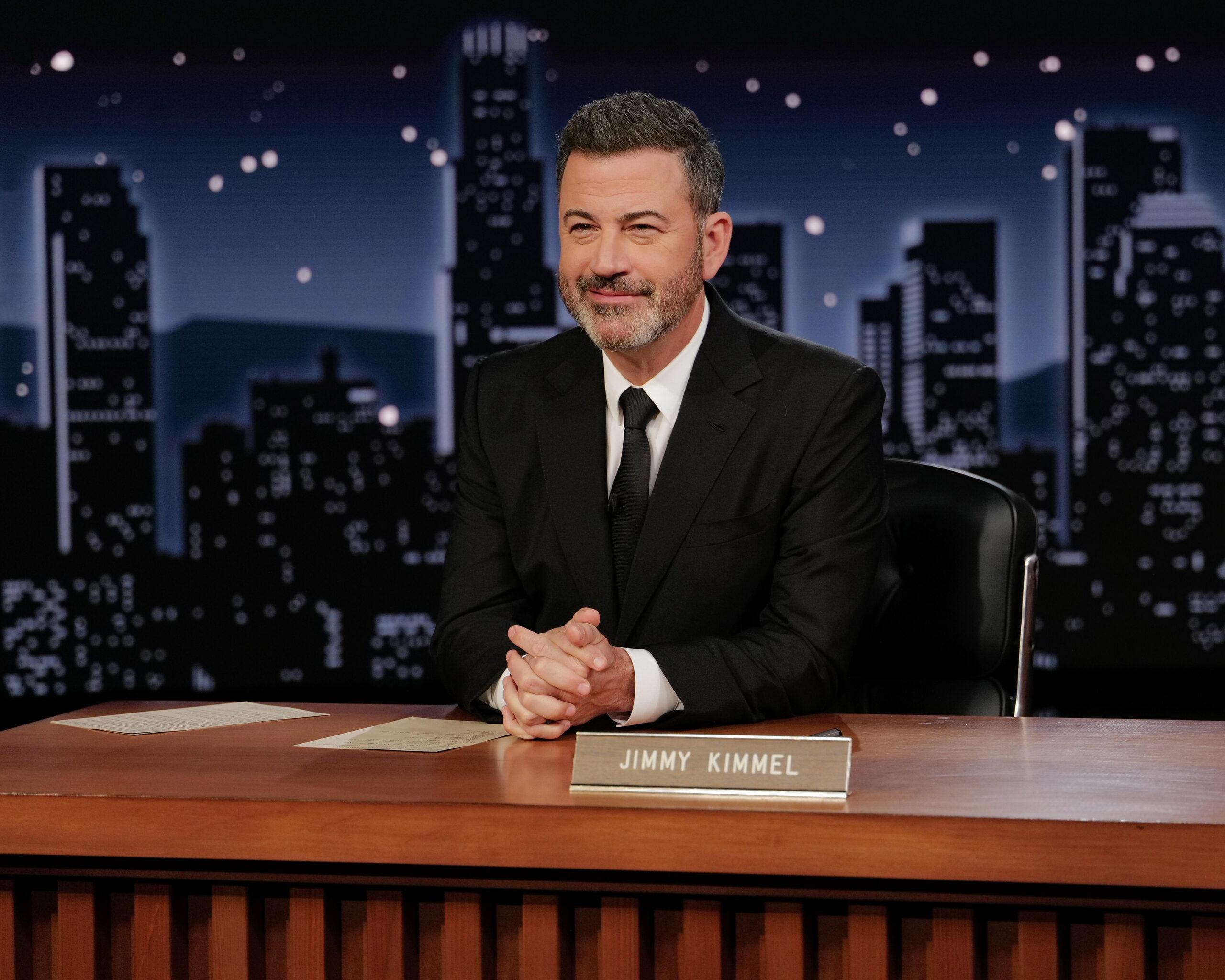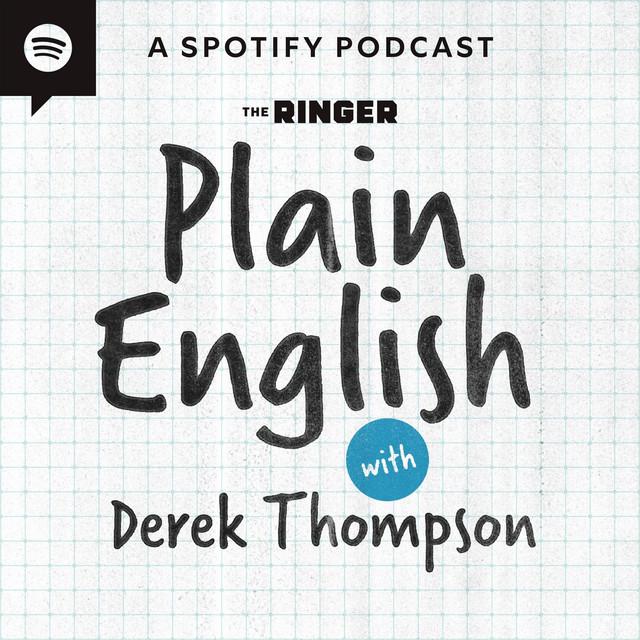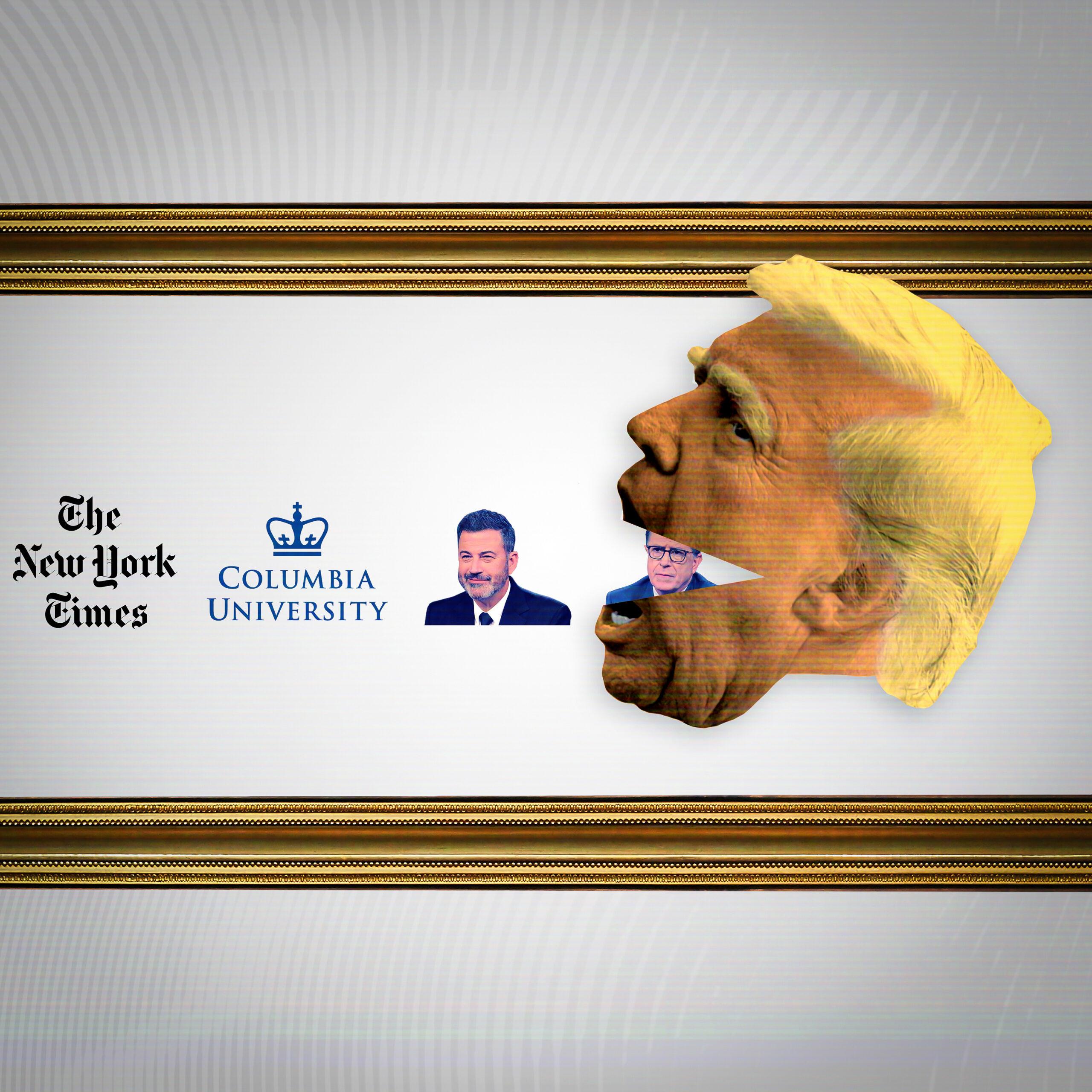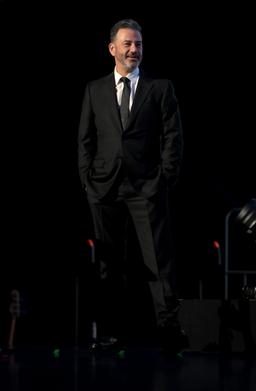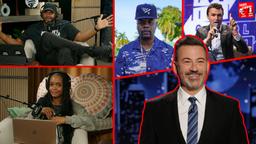About the episode
Matt Belloni, the host of the Town podcast and the author of Puck’s What I’m Hearing newsletter, joins the show to talk about Jimmy Kimmel’s punishment, what happened behind the scenes at ABC and Disney, Bob Iger’s legacy, and what this means at a moment when media companies are bending the knee to the Trump administration, which is clearly using its position to punish free speech despite rising to power by promising to do the opposite.
If you have questions, observations, or ideas for future episodes, email us at PlainEnglish@Spotify.com.
Host: Derek Thompson
Guest: Matt Belloni
Producer: Devon Baroldi
In the following excerpt, Derek talks to Matt Belloni about what was happening behind the scenes at ABC and Disney before Jimmy Kimmel Live! was suspended.
Derek Thompson: Matt Belloni, welcome to the show.
Matt Belloni: Thank you. Thanks for having me. Big week.
Thompson: Huge week. So when these kinds of stories break, I feel like you often get analysis from some folks where the question of what exactly happened is muddled by the question of whether it’s right or whether it’s moral. And to the best of our ability, I want to start by literally just understanding what the hell just happened, blow for blow: what the conversations were like inside Disney, why they made this decision. And then once we have a satisfying blow-by-blow, we’ll get into what it means and just how extraordinary this moment is in American politics and media history. So in my opening that I just recorded, I walked people through the publicly known facts, the most publicly known facts: Kimmel’s comments on Monday, the reaction that billows on Tuesday morning on social media of conservatives being upset about this, and then finally the cancellation or suspension. What I want to know from you is what happened behind the scenes. When Disney and ABC executives are huddling to discuss the fallout of Kimmel’s comments and the blowback, what are they talking about? What are they looking at and listening to when they made this decision?
Belloni: Well, just the precursor here is that it’s not unusual for TV executives to be concerned about something that happened on their late-night show the night before. I used to joke with people at HBO that in the pre-internet days or the pre–social media days, they would monitor the phone calls on Saturdays because it was always people who were pissed about Bill Maher and something Bill Maher said. So these days, obviously, that’s amped way up—the polarization of the electorate, and the ability of anyone to comment whenever they want on social media—so ABC and Kimmel often deal with this. What happened here was in this environment—with the Charlie Kirk assassination, and all of the reactions, and people getting fired at the local school, and Matthew Dowd being taken off MSNBC for something he said—they were extra sensitive about what happened on Kimmel on Monday night.
And you said what the comment was; it is what it is. The reaction on social media was pretty significant, and you had a lot of, not just the right-wing trolls, you had a lot of mainstream conservative commentators who were pretty critical of what Kimmel had said. And we can get into whether they were disingenuous or whether they were trying to fan the flames to go after someone that has been a target of the right for a long time. But ABC was concerned. Then the FCC chair went on a podcast and said that Disney needs to do something about this. He said … “We can do this the easy way or the hard way”—very explicit in his threat.
Thompson: Wait, what does that mean to you? What does that mean to you, “We can do this the easy way or the hard way”?
Belloni: Meaning you can take action against Kimmel, or we can force you to take action, and we have the levers to make sure that you will take action. And we can get into what those levers are. Obviously, the ABC stations are all licensed by the FCC. Disney owns many of those stations, especially in the big markets—Chicago, New York, L.A. And they have relationships with these affiliates, they’re called, where there are station groups that agree to air the ABC content for a fee and are affiliated with them but are not owned by Disney and ABC. So that’s the environment. And once [FCC chair] Brendan Carr went after the show and went after Disney in particular, conversations started, meaning we have to address this on the show. And Kimmel said, “OK, I’m going to address it on the show.” And I think he knew in advance that he had to do that. And they went back and forth, all day they went back and forth on what Kimmel would say.
And I reported in my Puck newsletter what Kimmel’s response was going to be. And it was going to be a clarification that, no, he did not mean to say that the shooter of Charlie Kirk was a MAGA person. What his point was is that people were using the shooting to try to dunk and gain political points, and they don’t know, we don’t know, and it’s all up in the air. I’m paraphrasing, obviously. In addition to that, in addition to clarifying what he actually said, the comments went further. He went after people on social media who have, in his mind, mischaracterized this for their own political points. He specifically named Fox News and their whole fair and balanced thing, and mocked that. He made a number of comments in his draft of the monologue that ABC executives decided or thought would be further incendiary—meaning would make the situation worse, not better.
They would’ve preferred that this be a—not full-throated, because you don’t want to lose your audience—but an apology. I should have been clearer, it was ambiguous to the point where it allowed people to run with this, I’m sorry, move on. Kimmel didn’t want to do that. And I understand that. He didn’t do anything wrong, per se. My take is that there are a lot of people that saw that before it aired, and you would think maybe a producer would be like, “OK, let’s retape that, let’s make it clear what you’re actually saying so there is no ambiguity. We know this is hypersensitive. We know that you have a target on your back. Let’s make this extra clear.” That didn’t happen. And I think, in retrospect, Disney regrets that that didn’t happen. Kimmel has been pretty steadfast that he did nothing wrong, won’t apologize.
They weren’t asking for an outright, like, This is my bad, and I did something wrong. But they were asking for some version of a clarification, slash, Yeah, I could see how this would be misconstrued. So once Kimmel and the late-night executive Rob Mills couldn’t get to an agreement, Dana Walden got involved. She’s the head of the Disney television unit that oversees everything from ABC News to FX to Hulu, all the television content. She’s one of the no. 2s at the company that is potentially going to succeed Bob Iger as CEO. She has a longtime relationship with Kimmel, and even they couldn’t get to an agreement, and the clock was ticking. They usually tape that show about 4:30 in the afternoon, I believe, and they had to make a decision because Kimmel wanted to say what he wanted to say. They had people in line to come into the studio to watch the show.
Thompson: Wow.
Belloni: So they had to figure out what they were going to do. And with Iger, and Iger approved this—and he’s not out of this—I know they often try to protect him, but he made this decision as well. They chose to punt, essentially say, We are suspending the show indefinitely. Didn’t say “temporarily.” Said “indefinitely.” And behind the scenes, they said, We need to figure out what to do here. Now, the result of that was that it unleashed this global torrent of backlash because of the First Amendment issues, because of all the stuff that everybody’s written about.
This excerpt has been edited and condensed.
